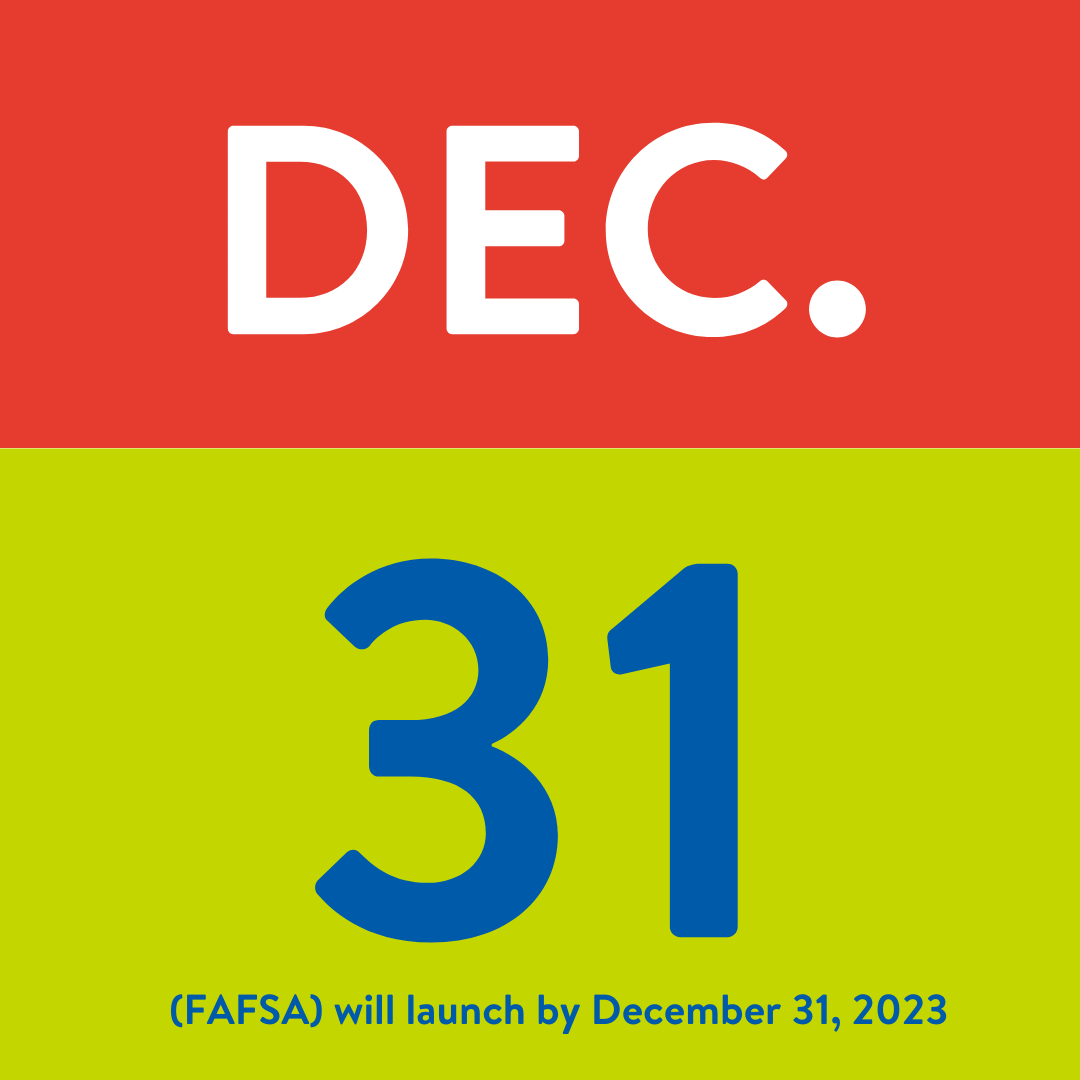By Kim Cook, NCAN CEO
Reading time: Four minutes

The 2024-25 Free Application for Federal Student Aid (FAFSA) will launch by December 31, 2023, according to an electronic announcement posted today by the US Department of Education (ED). Since 2016, the FAFSA has opened on October 1, meaning that students have three fewer months to complete the form this cycle. This announcement clarifies that the newly revised application will meet the federal statutory requirement to open prior to January 1, 2024.
Although the announcement’s language of “by December 31” implies that the FAFSA could launch sooner, the National College Attainment Network (NCAN) recommends that for planning purposes, our member organizations use December 31 as the official opening date.
Unfortunately, the 2024-25 FAFSA launch will come with some implementation changes and delayed processes referred to in the announcement. Notably, although students will receive a confirmation email with their Pell Grant eligibility and estimated Student Aid Index, colleges and universities will not begin to receive Institutional Student Information Records (ISIRs) until later in January. We anticipate that institutions of higher education will then need multiple weeks to load the data, test systems, and begin to generate financial aid offers, likely reaching students in mid- to late-February at the earliest.
The announcement outlines other changes to the 2024-25 cycle, including the fact that direct connections to state financial aid applications will not be available. This limitation affects applicants in Iowa, Minnesota, Mississippi, New Jersey, New York, Pennsylvania, and Vermont. These connections will return with the 2025-26 FAFSA. There will also be a delay in the processing of institutional corrections and paper FAFSAs, scheduled to begin in February. All of these factors complicate a year in which we are already implementing comprehensive changes for the better including direct data exchange with the Internal Revenue Service and a new process to create FSA IDs for those without Social Security numbers.
Clarity on the launch date will help NCAN’s college access advisors, school counselors, and others who support students to plan financial aid nights and FAFSA completion events. However, delaying the form’s release to late December and further delaying ISIRs will require us to work within an even more compressed timeline that could result in lower FAFSA completion and college enrollment rates than in previous years. Those states with FAFSA completion as a high school graduation requirement will be operating under immense pressure to support students in a timely manner and ensure all requirements are met.
The delays will have the highest impact on students from the lowest income backgrounds whose postsecondary enrollment has yet to return to pre-pandemic levels. These students must wait for their aid offers to confirm that they can afford college. This timing further complicates an admissions cycle already filled with uncertainty following the Supreme Court decision to ban race-conscious admissions.
Although signs point to a bumpy year for implementation of the new FAFSA, NCAN remains committed to the outcomes it will realize, particularly the expansion of Pell Grants, a top policy priority. The announcement notes that the redesigned and streamlined FAFSA will, “help 610,000 more students from low-income backgrounds receive Pell Grants. In total, it will allow 1.5 million more students access to the maximum Pell Grant, bringing the total number of students eligible for the maximum Pell Grant to over 5.2 million.” You can view a state-by-state breakdown of the impacts of the better FAFSA form in today’s ED press release.
NCAN has asked the Office of Federal Student Aid (FSA) to help mitigate the impact of the implementation changes by keeping verification selection rates low, restoring weekend hours for the FSA Information Center, including links to state aid applications in confirmation e-mails to applicants, continuing training and tool creation, and sharing timely FAFSA completion data to monitor progress. NCAN is also eager to open conversations with partners in financial aid and admissions to revisit the May 1 college enrollment commitment deadline if needed.
NCAN will host a webinar on Friday, November 17 at 2PM ET where FSA leaders will share details on this announcement and take questions from participants. NCAN continues to support its members and the field with resources in its suite of tools and resources and training webinars. We encourage practitioners to use those tools from FSA and others, including a Pell Grant lookup table, a Financial Aid Estimator, the FAFSA prototype, and an infographicto determine which parent(s) should contribute to the application, to prepare students to be ready to file on the application launch date. FSA will continue to update its 2024-25 FAFSA Roadmap webpage and has created a 2024-25 FASFA Updates page on the FSA Knowledge Center where it will post new information and resources at least every other week for the next several months.
